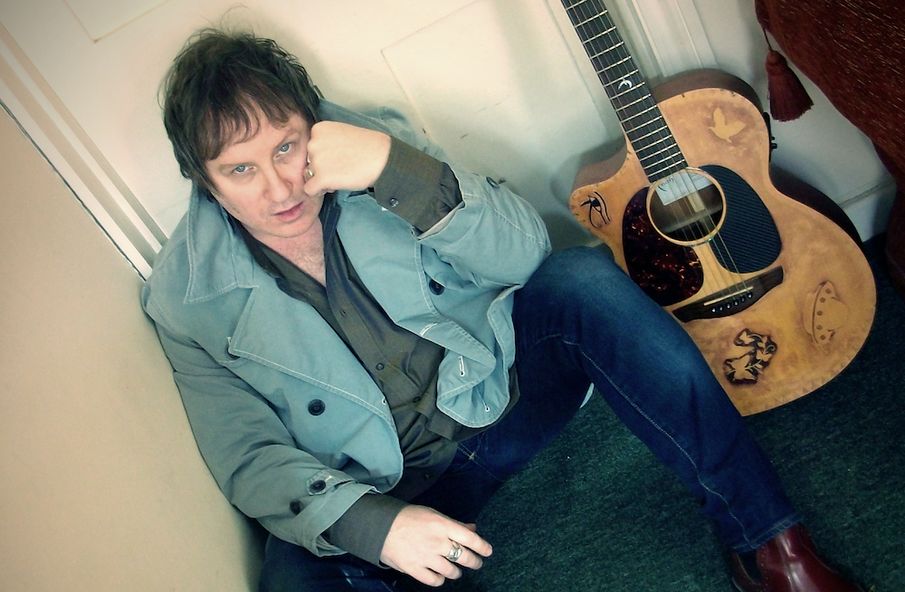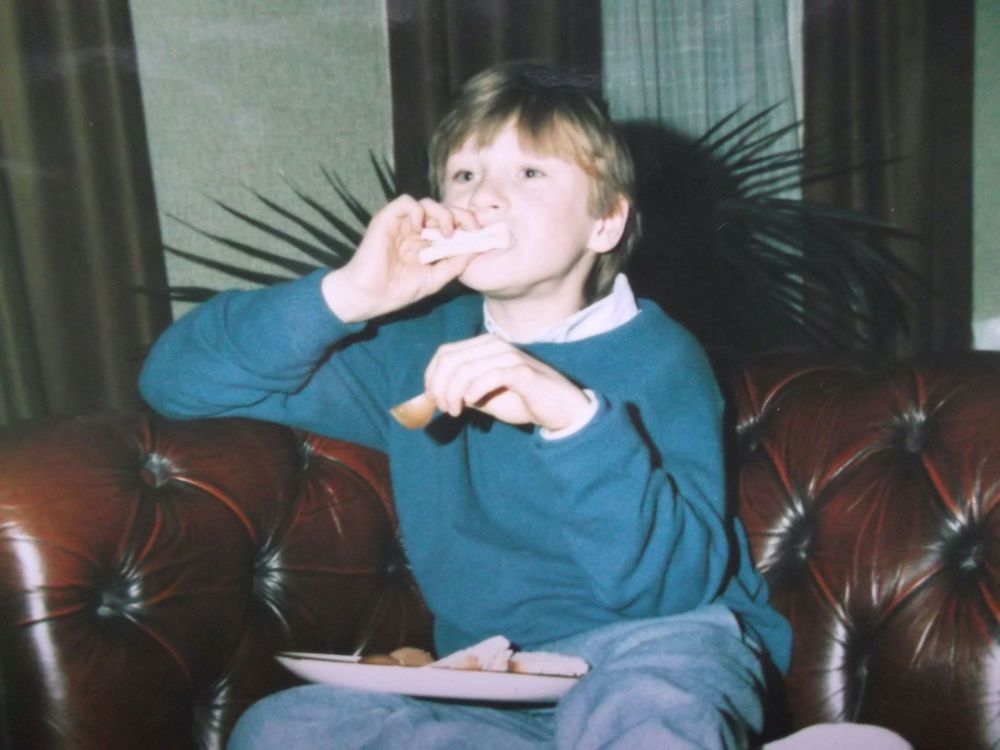Creative expression became a healthy outlet for Danny to channel his Tourette’s syndrome, and through his experience he’s recognised that mental health can hold a mirror up to show our true selves, as well as the world around us
I am a singer songwriter with Tourette’s syndrome. My mother is a healer, my father an antiques dealer – so I have healing hands, and history in my genes.
The story of my family’s awareness of mental health issues began when my father was only a child. He watched from the window as his older sister, my aunt Lillian, who was only six or seven at the time, was put into a black Morris Minor and taken to a mental institution. He never saw her again. What makes this story sadder is that she probably had a form of Tourette’s or Asperger’s, something that we can now understand more and help with – yet she ended up spending the rest of her days there alone.
However, this is where my learnings and knowledge of this subject stem from. Just like spirit is invisible much of the time, so are many forms of mental illness, so I feel compelled to reveal them to people through music and words.
I had no idea I was any different from anybody else until I was told so – I don’t think any child does until they are made aware of it. I thought the rituals I performed, OCD that is, were things everybody did.
Children can walk around with buckets on their heads, and nobody blinks an eye. I feel it should be the same for us all more generally, unless somebody is being harmed by an action – and that goes for mental health conditions, too. This is another reason why it is imperative for me to nurture the inner child; it lacks judgement, and laughs rather than ridicules. There is a big difference between laughing at the situation, rather than the person. Also remember that different doesn’t mean bad; it can mean wizardry – and we’d all like to be Merlin really, if only we could find the courage to do so.
In my eyes, Tourette’s is a magnified version of many people’s lives, as many Tourettians are masters of suppression in public, because we have to be when we can muster the strength through fear of judgement. However, suppression is never a healthy thing as it will always manifest later, often in the most inappropriate way at the most inopportune time.
Please also understand that not all Tourettians have involuntary shouting and swearing, which is called coprolalia – only around 10% of those with it do. I have my own version of it. As people, just like you, we have similarities, but not one thing defines us completely.
Much of the time, I find my own way to overcome and deal with each random symptom, by channelling it through my creative work, or weaving my tics into the everyday things I do. You know like when you are running, and fall over – so you might do a forward roll at the end to make it look like you did it on purpose? Ta-da! Like that. Humour is the essence of my survival; especially humouring oneself, which is the ultimate degree in humility and tolerance in my opinion. I only take life seriously when I need to – otherwise, I am missing the point of living, and so much beauty that follows.
With Tourette’s or without it, I have far too much experience of my own behaviour to waste time being offended by others; it’s an inverted form of judgement in most cases anyway, and it must be so exhausting, staying offended all the time.
Eventually though, art and music also became a welcome healer – and thankfully, because it became my solace and my expression all in one, a bit like one big satisfying twitch. I sat from a young age and created. When you are lost in something so magical, you begin to see your true self – and are then able to work on the ‘negatives’.
Although I am very aware of how debilitating mine and many other mental health conditions can be at times, this is about taking responsibility when we are strong enough to do so, and turning something that can be destructive into something productive. We may have to work harder than others, but our rewards will be greater for it.
We have flaws, yet everybody does – and I feel the greatest spiritual teachers have. They are more human and easier to relate to. Often when we see flaws, we judge on the lesser of the whole. It is a tragedy when people’s mistakes become greater than their goodness in so many people’s eyes, when it should really be the other way around.
That’s also why I love those with mental health conditions so much, because there is nothing contrived about them – and those who survive these conditions are saints and heroes to me. Teaching anything spiritual isn’t about being perfect, it’s about being courageous enough to show we are not, then to share the lessons we’ve learned with those who need guidance.
"Art and music became a welcome healer – and thankfully, because it became my solace and my expression all in one, a bit like one big satisfying twitch"
So the point of this article is? Basically, empowering each other to see the light while respecting the shadows. Seeing the mirror in each other. It is about reaching out and sharing – two of our greatest gifts, and our greatest rewards when we do so. We mustn’t be afraid of the dark; the darkness is our teacher if we befriend it.
I am on a journey, not a mission. Mental health conditions, in fact any state of being out of the norm, can induce wonderful art. And wonderful art and creativity can induce healing as well. We all have mental health, and for some this includes mental health conditions, which can turn into mental health problems – but there is a big difference between these, and society needs to learn this.
To date, I have written more than 300 songs, four books, and painted until the moon has hung low in the sky. Through doing so, I am hopefully creating awareness by not being defined by my condition.
Tourette’s teaches tolerance – as many other conditions can. It is a bridge to Zen. It is also kintsugi, and alchemy. Tourette’s is the Heyoka – the sacred clown – of mental health conditions; a beautiful oxymoron.
Rav Sekhon | BA MA MBACP (Accred) says:
Danny’s inspiring journey takes us through the challenges that living with Tourette’s can bring. Elegantly, Danny tells us how he has embraced his diagnosis – and it does not define him, it provides him with strength. The energy that Danny brings in his words is powerful, and it’s clear to see that his experiences have lit a creative fire within, enabling him to flourish.
To connect with a counsellor, or learn more about coming to terms with a diagnosis, visit counselling-directory.org.uk



Comments